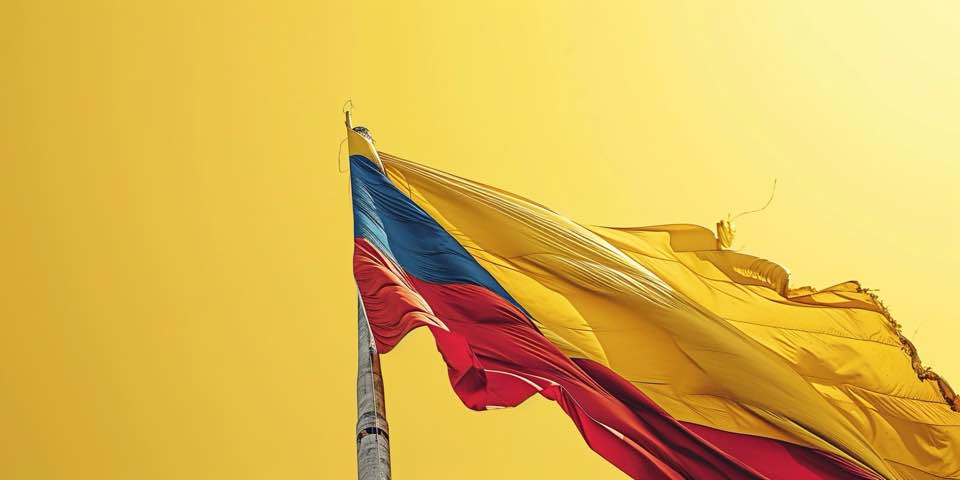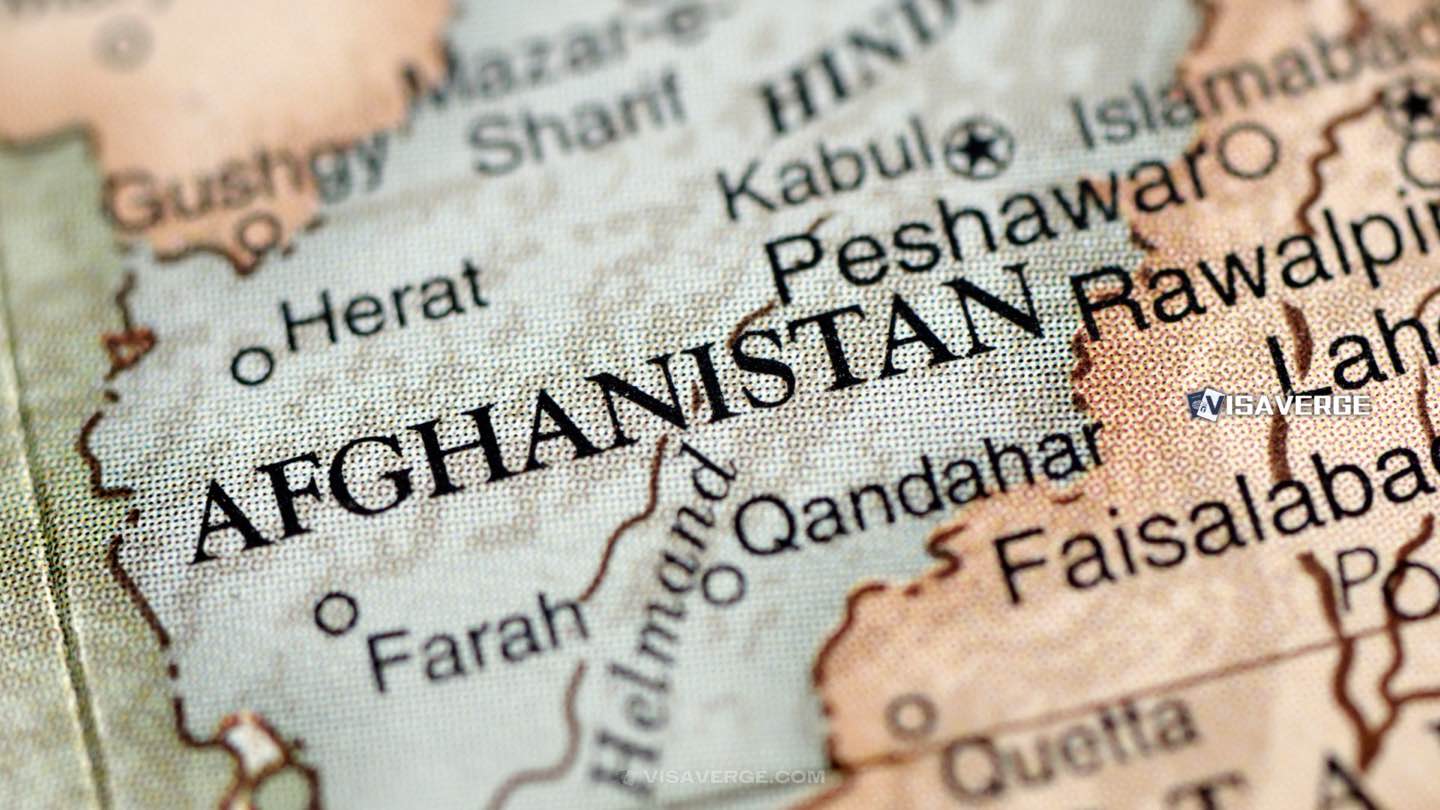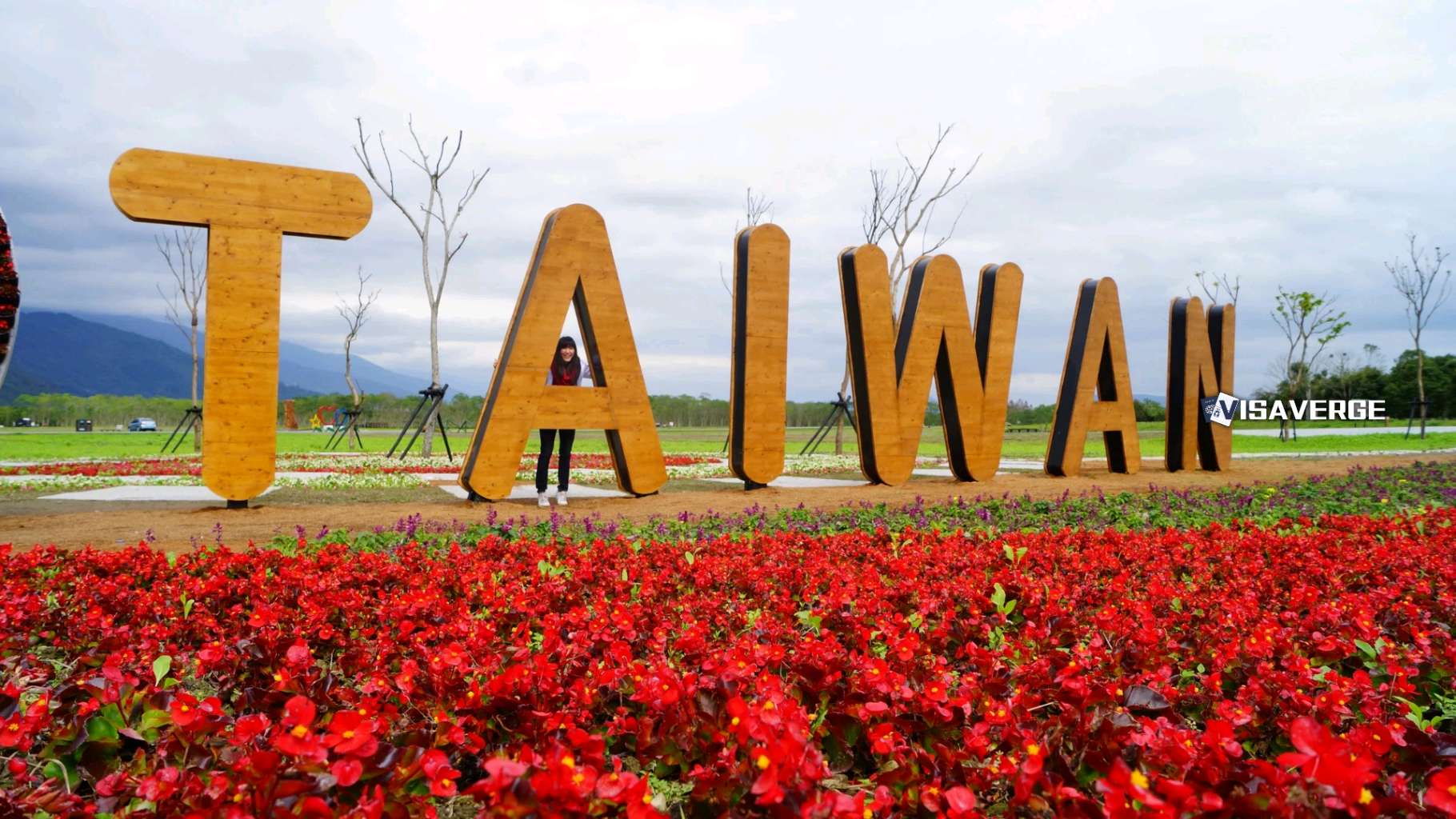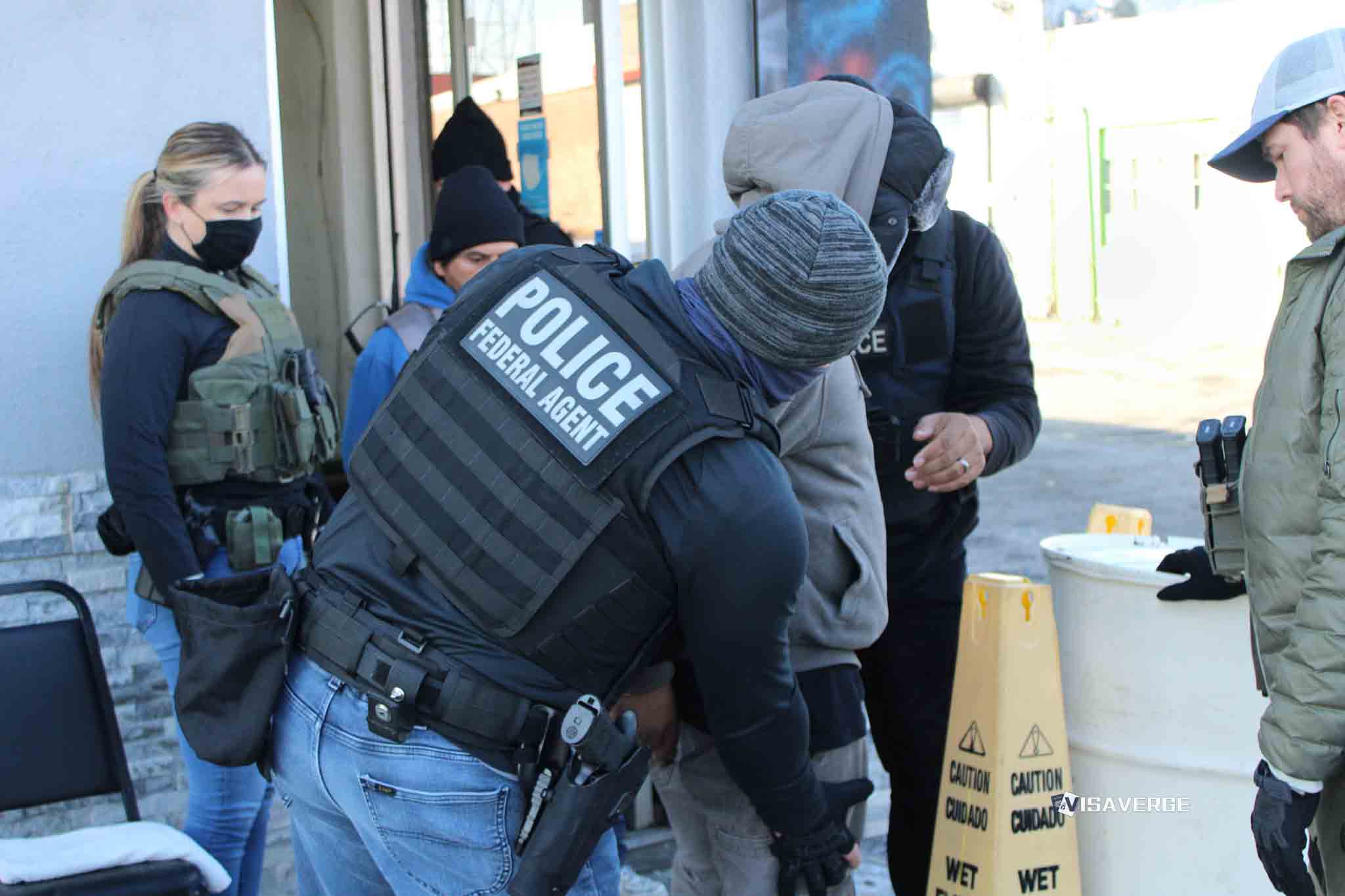(COLOMBIA) Colombia’s top diplomat has renounced her U.S. visa in an unusually direct protest that spotlights deepening rifts between Bogotá and Washington over security, migration, and regional politics. Foreign Minister Rosa Villavicencio announced on September 30, 2025, that she asked the United States to cancel her visa, calling it “an act of dignity in the face of the unacceptable decision to revoke the visa of the President of Colombia.” She added, “Our sovereignty does not bow down. Colombia must be respected.”
The move follows the U.S. State Department’s reported revocation of President Gustavo Petro’s visa after he joined a pro-Palestinian protest in New York during the UN General Assembly, where he urged U.S. soldiers to disobey orders from President Donald Trump and called for an international force in Gaza and the West Bank.

Immediate political response and symbolism
The decision is rare for a sitting foreign minister, and it throws the policy disputes between the two governments into sharp relief. Analysts describe the renunciation as a symbolic step rather than a legal necessity, but one with heavy diplomatic weight. It signals that Colombia is willing to publicly challenge U.S. pressure instead of handling disagreements quietly behind closed doors.
Villavicencio’s stand drew immediate solidarity within the Colombian cabinet. Finance Minister Germán Ávila said he would stop using his U.S. visa, declaring, “To work for our people, we do not need visas.” The coordinated messaging amplifies Bogotá’s argument that Washington’s actions cross a line and that Colombia will respond as a matter of national pride.
Root causes: overlapping disputes
Several intertwined disputes lie beneath this moment:
- Drug policy: U.S. officials have criticized Colombia’s shift away from traditional counter-narcotics tactics under President Petro’s “Total Peace” approach, arguing the government isn’t meeting international commitments.
- Migration: Colombia is a major transit and host country for migrants moving north toward the U.S., making migration management a recurring flashpoint.
- Trade measures: Tensions escalated earlier in 2025 when Colombia refused U.S. deportation flights, preceding a 25% tariff the United States imposed on certain Colombian imports in January 2025.
- Regional/geopolitical disputes: Differences over the war in Gaza, U.S. military activity near Venezuela, and Colombia’s push for a more independent Latin American foreign policy have worsened the rift.
Within Colombia, adopting a firm public stance against perceived foreign intrusion has political appeal. The posture can rally nationalist sentiment and help consolidate the governing coalition ahead of the 2026 elections.
Potential diplomatic consequences
Diplomatic consequences could follow in several directions:
- The U.S. could take reciprocal measures limiting access for Colombian officials and their families or slowing policy engagement.
- There are already reports of additional visa actions affecting members of the Colombian government.
- Such steps would deepen mistrust and complicate coordination on intelligence sharing, joint drug enforcement, and regional security.
Even if channels remain open, cooperation is likely to feel more fragile, increasing the risk that small disputes escalate quickly.
The Foreign Minister’s action is largely symbolic in legal terms — but symbols matter in diplomacy, and this communicates a rupture that departments and agencies will feel.
Economic and business impact
The fallout is not only political:
- Exporters (coffee, flowers, and other goods) are already feeling pressure from tariffs and trade uncertainty.
- Investors are sensitive to political risk; a prolonged standoff tends to cool investment and delay decisions.
- Observers in Bogotá report a dip in U.S. foreign direct investment in 2025 amid the chill, though exact figures are not yet available.
Business groups fear that if the confrontation expands, supply chains could be disrupted and firms may face higher costs and longer timelines to move goods.
Legal and procedural context on visas
There is a legal and procedural angle that affects public perception:
- Immigration attorneys note there is no formal, universal renunciation process for nonimmigrant U.S. visas similar to renouncing citizenship.
- A visa holder can send a letter asking an embassy or consulate to cancel a visa or simply refrain from travel.
- U.S. consular officers also have independent authority to revoke or cancel visas.
For official guidance, see the U.S. Department of State’s rules on visa revocation: U.S. Department of State – 9 FAM 403.11 (Visa Revocation).
While Villavicencio’s step is largely symbolic, its diplomatic symbolism is consequential and sets a tone other agencies will respond to.
Policy and legal context (trigger and background)
The immediate trigger was the reported U.S. revocation of President Petro’s visa after his UNGA activities in New York, which included support for a pro-Palestinian protest and the controversial claim urging U.S. soldiers to defy President Trump. That allegation appears to have prompted a strong response in Washington on top of ongoing security and migration disagreements.
Analysts (e.g., VisaVerge.com) note high-profile revocations are uncommon and usually reflect a perceived crossing of a clear red line or a threat to public order.
Despite tensions, both countries have incentives to keep working ties in place:
- Counter-narcotics intelligence relationships remain crucial for tracking trafficking networks.
- Colombia’s role in migration routes affects flows to the U.S. border.
- Regional security coordination helps prevent spillovers, especially amid growing global competition in Latin America.
Colombian leaders appear willing to accept higher political and economic costs in exchange for a stronger posture on sovereignty. Officials say the stance resonates with parts of the public who view Washington’s actions as interference and Bogotá’s response as a defense of national dignity.
Impact on travelers, officials, and regional dynamics
Practical effects on ordinary travelers and officials differ:
- Day-to-day visa processing for B-1/B-2 visitor, F-1 student, or work visas generally remains separate from high-level diplomatic tensions—unless Washington issues broader directives.
- Sustained diplomatic friction can slow appointment availability, background checks, or coordination on security vetting.
- Colombian officials and their families are likelier to face tighter screening or visa cancellations; reports already suggest targeted revocations.
Neighboring governments are watching closely. Possible outcomes include:
- If Colombia’s stance forces U.S. concessions, other countries may follow with firmer positions.
- If harsher penalties follow for Colombia, regional leaders could become more cautious about confronting U.S. policy.
- The episode will influence how Latin American governments weigh the benefits and risks of criticizing the U.S. when domestic politics favor independence.
Political narrative and domestic stakes
In Bogotá, the government frames the dispute as a matter of sovereignty and respect. Supporters argue the stance demonstrates Colombia will not bow to external pressure. Critics warn of potential losses in trade, investment, and security support that benefit ordinary families.
Both perspectives will influence how the public judges the government’s approach as the 2026 elections approach.
What happens next — likely scenarios and open questions
Possible actions by either side include:
- The U.S. could expand visa restrictions, slow high-level visits, or attach stricter conditions to cooperation programs.
- Colombia could enact reciprocal limits on U.S. diplomats or seek regional allies to pressure Washington.
- A quieter path is also possible: behind-the-scenes talks to lower tensions while both governments publicly signal strength.
Key unresolved questions:
- Will Colombia impose reciprocal limits on U.S. diplomats and official travelers?
- Will the United States pursue more visa revocations or open a channel to repair ties?
- How will both sides handle joint work on counter-narcotics, migration, and regional security during the standoff?
- Will other Latin American governments follow Colombia’s example or use this moment to renegotiate aid and policy terms?
For now, Villavicencio’s renunciation is a clear marker that bilateral relations have entered a colder phase. The action may be largely symbolic in immigration law, but when trust is low, symbols shape policy choices. Businesses, students, families, and officials on both sides are already preparing for a period of uncertainty, hoping the two governments can eventually disagree without causing lasting harm to a longstanding partnership.
This Article in a Nutshell
On September 30, 2025, Colombian Foreign Minister Rosa Villavicencio publicly requested cancellation of her U.S. visa in direct protest after reports that the U.S. revoked President Gustavo Petro’s visa following his pro‑Palestinian actions at the UN General Assembly. The symbolic move—backed by other cabinet members—underscores deeper disputes over drug policy under Petro’s Total Peace approach, migration management, trade tensions including a 25% U.S. tariff on some Colombian imports, and regional geopolitical friction. Possible consequences include reciprocal U.S. restrictions, targeted visa actions against Colombian officials, reduced investment, and disrupted trade. While legal renunciation of nonimmigrant visas is largely procedural, the diplomatic signal may complicate cooperation on counter‑narcotics, intelligence sharing, and migration coordination ahead of the 2026 elections.













